The H-1B visa is a highly valuable, non-immigrant visa that allows U.S. companies to employ skilled foreign workers in specialty occupations. These jobs generally require advanced knowledge and a bachelor’s degree or higher in specific fields like IT, engineering, mathematics, medicine, and science. The H-1B visa is a key pathway for highly skilled foreign workers to enter the U.S. labor market.
Demand for H-1B visas exceeds demand and thus there is a lottery held each year in the first week of April. It is not too soon to start putting together the necessary documents of you want to sponsor someone for an H-1B or if you are a foreign national seeking sponsorship.
Basic Eligibility Requirements
Specialty Occupation: The job must require specialized knowledge and the minimum qualification of a bachelor’s degree or its equivalent in the relevant field. Common fields include technology, engineering, finance, healthcare, and education.
Employer Sponsorship: A U.S. employer must sponsor the applicant by filing a Labor Condition Application (LCA) with the Department of Labor (DOL). The LCA certifies that the employer will pay the prevailing wage for the position and that hiring a foreign worker will not negatively impact the working conditions of U.S. employees.
Cap Limits: The H-1B visa is subject to an annual cap of 65,000 visas, with an additional 20,000 visas available for workers holding a master’s degree or higher from a U.S. institution. Some employers, such as universities and research institutions, are exempt from the cap.
Duration and Extensions
An H-1B visa is initially granted for up to three years, with the possibility of a three-year extension, making the maximum stay six years. In certain circumstances, extensions beyond six years are allowed if the worker has begun the green card application process.
Job Portability and Dependents
H-1B holders can change employers, provided the new employer files an H-1B transfer petition. Additionally, H-1B workers’ spouses and children under 21 can apply for H-4 visas, though H-4 visa holders generally cannot work unless eligible for certain work authorizations.
Additional information about the H-1B can be found at the USCIS website here: USCIS, H-1B Specialty Occupations
Conclusion
The H-1B visa plays a crucial role in allowing U.S. employers to access global talent in specialized fields, but it remains highly competitive and subject to strict rules and regulations.
The H-1B visa application process is very complex and should be undertaken with the help of a skilled immigration lawyer. Contact us online at the Law Office of Gregory J. Eck, LLC for more information.


